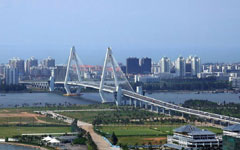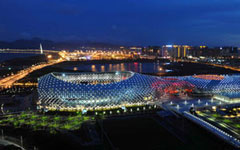In a recent survey conducted by MRIC Group, an international executive recruitment firm, 47.3 percent of the 269 respondents in Beijing said they would like to relocate this year because of air quality concerns. The most-preferred destinations are North America, Shanghai, Europe, Hong Kong, Singapore and New Zealand.
As human capital is weighing ever more among the five categories, some companies have to improve the working environment to retain talent regarding the air quality in Beijing.
"Companies should prepare air purifiers especially when the buildings don't have such machines," said Robert Parkinson, founder and managing director of the international recruitment group RMG Selection.
|
 |
|
 |
Beijing lags behind Shanghai in human capital because of the capital city's "size of the foreign-born population, scores of universities in the global 500, number of inhabitants with tertiary degrees, international student population and number of international schools," explained Chng from A.T. Kearney.
On the other hand, Shanghai ranked lower due to a less-ideal score in political engagement. Specifically, Shanghai is home to a smaller number of international organizations, embassies and consulates, think tanks, political conferences and local institutions with international reach.
The Shanghai Pilot Free Trade Zone will certainly help the city's globalization in the long term. However, the impact and the speed of that depends on policy implementation as there are still lots of details to be sorted out in terms of how exactly Shanghai FTZ will work, Chng said.
"In the short term, I do not see any material change as most companies are simply trying to take advantage of the FTZ to help with the existing business rather than attracting significant new business," said Chng.
Other Chinese cities in the list saw their rankings drop.
Guangzhou dropped from its rank of 60 to 66 this year due to a significant decrease in political engagement. Shenzhen dropped from 65 to 73 due to a decline in its human capital score.
